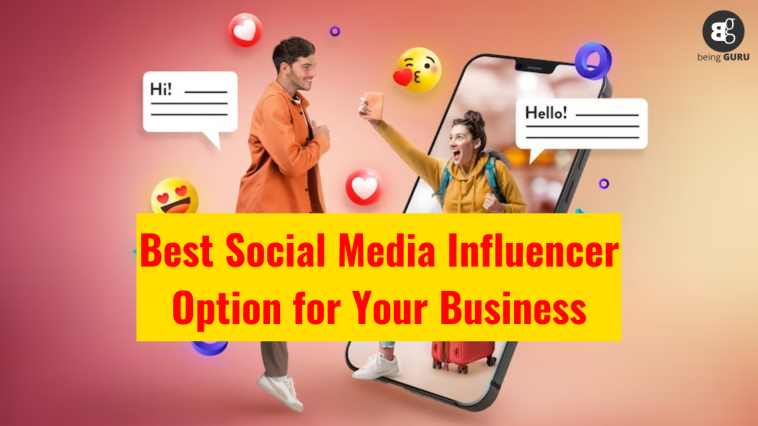The landscape of influencer marketing has experienced a significant transformation in recent years. It is no longer exclusively tied to the allure of celebrity endorsements or macro-influencers flaunting millions of followers. Instead, brands are increasingly drawn to Nano- and micro-influencers who may have smaller but highly engaged audiences.
Establishing authentic connections with consumers hinges on collaborating with content creators who provide visibility, genuine endorsement, and effective advocacy. Marketers have shifted their focus, recognizing that the quality of engagement surpasses the sheer size of an influencer’s following.
For marketers, exploring the influencer marketing world to distinguish the ideal match for their brand can overwhelm them. Let’s dive into the complexities of choosing the right influencer to meet your business needs.
Nano-Influencers: Building Bridges in Communities
With follower counts typically below 10,000, nano-influencers excel at creating authentic connections within close-knit communities. Unlike mega-influencers, they prioritize personalized interactions, responding genuinely to comments and messages. Their recommendations carry the weight of friendly advice, often collaborating with local businesses to offer relatable reviews.
What sets nano-influencers apart is their authenticity, untainted by the celebrity status that can dilute genuineness. Brands increasingly acknowledge these micro-communities influence, redirecting their focus toward targeted influencer marketing.
These community connectors effectively bridge the gap between brands and specialized audiences, highlighting that smaller followings can wield a more significant impact on community building and trust in the era of authenticity.
Pros
- High authenticity in engagements.
- Cost-effective and affordable partnerships.
- Direct and personal communication channels.
- Easy-to-reach influencers.
Cons
- Limited audience reach.
- Potentially less polished content.
- Primarily organic growth, with a slower scale.
Best for: Niche products, Localized promotions, Community-driven campaigns.
Micro-Influencers: Enthusiastic Specialists
With follower counts ranging from 10,000 to 100,000, micro-influencers are niche experts who captivate dedicated audiences with their specialized focus. Striking a balance between reach and engagement, they deliver in-depth content that forges intimate connections with followers through valuable insights.
When collaborating with brands aligned with their niche, micro-influencers provide authentic endorsements, leveraging their perceived expertise. Their recommendations carry weight, establishing them as influential tastemakers within their specific domain. Micro-influencers seamlessly blend trust with a substantial reach, offering a strategic middle ground for brands aiming to connect with diverse yet engaged audiences.
In a content-saturated digital environment, they emerge as trusted guides, underscoring the impact of a focused and knowledgeable approach in shaping consumer trends.
Pros
- Easy-to-reach influencers.
- Strong connection with their audience.
- Higher engagement rates.
- A balance of reach and authenticity.
Cons
- Still limited to mid-tier reach.
- Platform-specific influence.
- Varied content quality standards.
Best for: Emerging products, Brands targeting specific hobbies, Authentic narratives.
Macro-Influencers: Versatile Voices
With follower counts ranging from 50,000 (or 100,000 at times) to a million, macro-influencers serve as bridge figures, connecting broad reach with niche expertise. Positioned between micro and mega-influencers, they bring a unique dynamic to influencer marketing, offering a balance by having a significant following while often maintaining a specialized focus.
Their material strikes a chord with a wide range of people, drawing in different types of viewers while also satisfying niche needs.
Because they work with a variety of brands, influencers in this tier are adaptable partners for businesses looking for a balance between reach and focused impact. Their recommendations are given a hint of aspirational appeal by their content, which frequently presents a clean and professional image.
Pros
- Broad exposure to varied audiences.
- Professional approach to collaborations.
- Established reputation in their domain.
Cons
- Relatively higher collaboration fees.
- Possibility of a diminished intimate relationship with supporters.
- More pronounced competition among brands for partnerships.
Best for: Established brands, diverse audience campaigns, and Larger product launches.
Mega-Influencers: Digital Titans
With follower counts surpassing a million, mega-influencers stand as digital titans, commanding vast territories of influence across social media platforms. Their reach is exceptionally high, positioning them as key players in shaping trends, opinions, and consumer behaviors.
Possessing a celebrity-like status, mega-influencers have the power to turn products into trends and shape the cultural zeitgeist, with their endorsements capable of catapulting brands into the mainstream.
Mega-influencers engage in collaborations with major brands and participate in high-profile campaigns, leveraging their massive following to amplify messages. Even though their content seems professional and aspirational, it might be difficult to sustain a real relationship with a vast audience.
Pros
- Extremely high reach across regions.
- High-quality content production.
- Amplified brand visibility.
Cons
- Premium collaboration costs.
- Time-consuming collaborations (results may not be immediate).
- Hard-to-reach influencers (sometimes involving communications at different levels).
- Potential disconnects from individual followers.
- Scrutiny and higher public relations considerations.
Best for: Mass audience campaigns, Luxury, and global brands, Trendsetting initiatives.
Final Thoughts
Influencer marketing is a powerful tool within the strategic marketing strategies of companies and brands of all sizes. Partnering with bloggers and opinion leaders facilitates the communication of information about products and services, as well as the dissemination of business values. However, the success of an entire marketing campaign involving influencers depends on the careful selection of the appropriate social media blogger.




